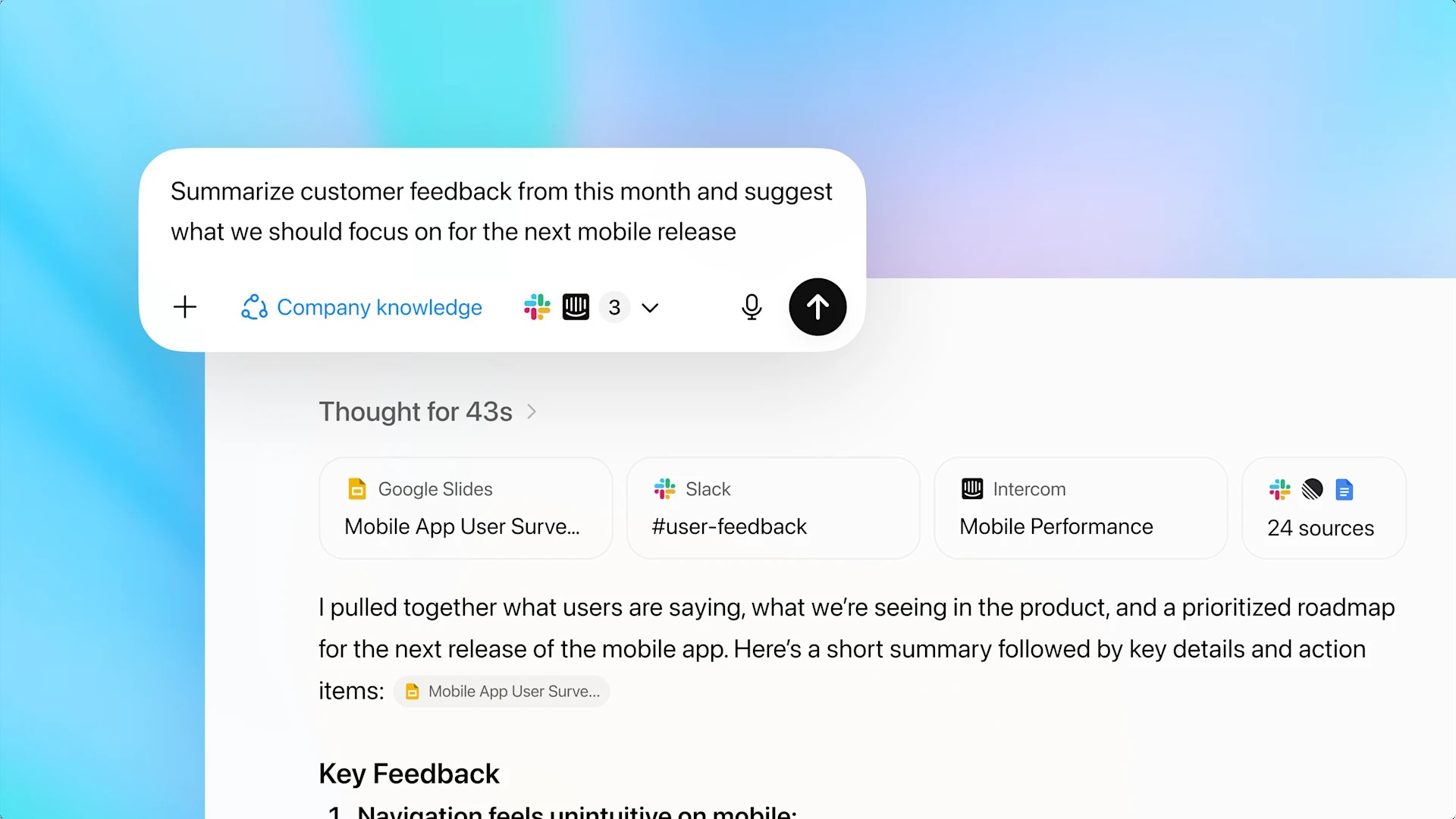OpenAI is expanding ChatGPT for the workplace by adding connectors that let the model access internal company data. Announced on 2025-10-24, this OpenAI enterprise data integration turns a general assistant into a practical workplace analyst that can surface company knowledge and speed up AI driven decision making.
Why enterprise connectivity matters
Many organizations face fragmented knowledge across chat, shared drives, ticketing systems and code repositories. Those information silos slow research, duplicate work and raise onboarding effort. AI powered knowledge management that integrates internal tools with AI can enable automated knowledge retrieval so employees get concise, context aware answers without hunting across multiple systems.
Key details and features
- Supported sources: Connectors for Slack, Google Drive, Microsoft SharePoint, GitHub and similar systems let ChatGPT read and reference internal documents and conversations.
- Functional shift: ChatGPT Enterprise can now surface documents, answer context aware questions using company data, and act like a basic business analyst rather than a general purpose chatbot.
- Security and governance: The update emphasizes enterprise AI security, including role based access control, SAML SSO support, audit logs and administrative oversight to help enforce data governance.
- Product positioning: The feature is rolling out with integrations across CRM and cloud providers to expand AI use for non technical staff without heavy engineering.
- RAG and retrieval: The approach relies on retrieval augmented generation, where the model pulls relevant documents at query time to improve accuracy and provenance.
Practical capabilities to expect
- Rapid knowledge retrieval: Ask natural language questions and receive answers sourced from internal documents, chat logs and code repositories.
- Basic analysis: The assistant can summarize findings, compare documents and surface supporting snippets with citations when available.
- Reduced engineering lift: Out of the box data connectors for common systems lower the barrier to integrating AI into everyday workflows.
Implications for businesses
- Faster research and decision making. Conversational access to internal data helps teams get concise, context aware answers that reduce time spent on routine research.
- Lower barrier to AI adoption. Connectors remove the need for custom pipelines, enabling small teams and knowledge workers to use AI for business processes.
- Governance becomes strategic. Ensuring data privacy, audit trails, compliance with GDPR and SOC 2, and granular control of data connectors will be critical for safe deployments.
- Role evolution. Routine retrieval and basic analysis are likely to become AI assisted tasks, while humans focus on verification, interpretation and exception handling.
Risks and limitations
- Hallucination risk: Models can produce plausible but incorrect answers. Require citations and human review for critical decisions.
- Data exposure: Misconfigured permissions could surface sensitive information. Enforce role based access control, IP whitelisting and monitoring to reduce risk.
- Compliance constraints: Highly regulated sectors may need private deployments or strict data residency options to meet legal requirements.
Recommendations for adoption
Pilot connectors in low risk areas, evaluate access controls and logging, and build human in the loop checks before wider rollout. Emphasize measurable business value by tracking time saved on knowledge work and improvements in research accuracy. Vendors that provide governance tooling and secure integrations will become key partners as enterprises seek to unify knowledge sources and elevate business intelligence with AI.
OpenAI's move to link ChatGPT to enterprise data makes AI a more practical tool for everyday knowledge work. The benefits are real if organizations pair these capabilities with strong data governance and verification processes, ensuring a safe and compliant expansion of AI driven workflows.




